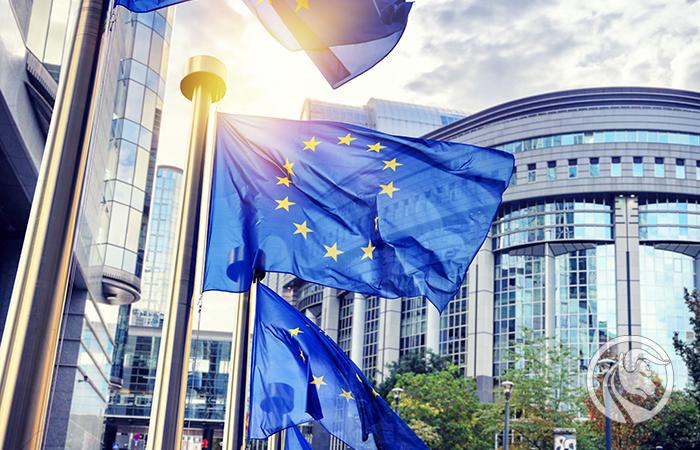European Commission: Cryptocurrency providers will report transactions of EU residents
The draft of the new EU law will soon be submitted to the European Parliament for consultation, and then to the Council of the European Union for possible adoption. According to preliminary plans, new reporting requirements for crypto-assets, electronic money and digital currencies will come into force on January 1, 2026. If this happens, all entities enabling cryptocurrency trading will have to report tax transactions.
Crypto Markets Regulation (MiCA) and anti-money laundering rules have already been defined by the European Commission. However, the new regulations are intended to supplement them. If they come into force, they will cover all service providers handling crypto-assets transactions for customers residing in the European Union.
In Europe, they do not pay taxes on cryptocurrencies?
In its official position, the European Commission argues that the collection of taxes on profits made on the cryptocurrency market is very low.
– Fair and effective taxation is essential to secure revenues for investment and public services, while creating a business environment in which innovation can flourish. However, tax authorities currently do not have the information necessary to monitor the proceeds from crypto-assets, which are often traded cross-border. This severely limits the ability of these authorities to ensure effective tax payment, meaning that European citizens lose significant tax revenues – we read in the statement of the European Commission.
Obligation to report transactions of citizens living in the EU
EU officials argue that the introduction of the changes will increase the ability of member states to detect tax fraud as well as cases of tax evasion. The obligation to report transactions of all customers residing in the European Union will apply to all companies: small and large.
The Directive will also set the level of penalties to be imposed on suppliers who fail to comply with this obligation. However, it will certainly not be the case that there will be financial penalties right away. Initially, suppliers will only receive a 'yellow card', most likely in the form of an administrative warning. Only if they do not respond to them can they expect a financial fine.
European Commission: Cryptocurrencies are anonymous
Why is such a law introduced at all? It turns out that according to European Commission officials, cryptocurrencies are ... anonymous. So it seems that despite the passage of years, officials still do not fully understand what it is all about blockchain technology.
- Anonymity means that many users of cryptocurrency making significant profits escape the scrutiny of national tax authorities. This situation is unacceptable. Our proposal will ensure that Member States have access to the information they need to ensure that they pay taxes on profits made in trading or investing in crypto-assets. As part of our fair taxation programme, we will update EU tax rules to address these issues by introducing a common standard to harmonize different national approaches to crypto-asset taxation. This will help national administrations collect taxes more efficiently by including crypto-asset income and keep up with technology developments as Europe progresses in the digital transformation - emphasizes the European Commission.
New regulations from 1 January 2026
Now the proposal to amend the Directive on Administrative Cooperation (DAC) will go to the European Parliament. There will be consultations. The next step is its adoption by the Council of the European Commission. Fortunately, it can be amended during the next legislative steps. What? This, of course, is not yet known, but officials plan that the new reporting requirements for crypto-assets, e-money and digital currencies will come into force on January 1, 2026.






















![Forex Club – Tax 9 – Settle tax on a foreign broker [Download the Application] Forex Club - Tax 9](https://forexclub.pl/wp-content/uploads/2024/02/Forex-Club-Podatek-9-184x120.jpg?v=1709046278)
![Trading View platform – solutions tailored to the needs of traders [Review] trading view review](https://forexclub.pl/wp-content/uploads/2024/03/trading-view-recenzja-184x120.jpg?v=1709558918)
![How to connect your FP Markets account to the Trading View platform [Guide] fp markets trading view](https://forexclub.pl/wp-content/uploads/2024/02/fp-markets-trading-view-184x120.jpg?v=1708677291)
![How to invest in ChatGPT and AI? Stocks and ETFs [Guide] how to invest in chatgpt and artificial intelligence](https://forexclub.pl/wp-content/uploads/2023/02/jak-inwestowac-w-chatgpt-i-sztuczna-inteligencje-184x120.jpg?v=1676364263)


![WeWork – the anatomy of the collapse of a company valued at $47 billion [WeWork, part II] wework bankruptcy story](https://forexclub.pl/wp-content/uploads/2024/04/wework-bankructwo-historia-184x120.jpg?v=1711729561)
![Adam Neumann – the man who screwed up Softbank [WeWork, part AND] adam neumann wework](https://forexclub.pl/wp-content/uploads/2024/04/adam-neumann-wework-184x120.jpg?v=1711728724)





![How to transfer shares to another brokerage office [Procedure description] how to transfer shares to another brokerage house](https://forexclub.pl/wp-content/uploads/2024/03/jak-przeniesc-akcje-do-innego-biura-maklerskiego-184x120.jpg?v=1709556924)

![The most common mistakes of a beginner trader - Mr Yogi [VIDEO] Scalping - The most common mistakes of a beginner trader - VIDEO](https://forexclub.pl/wp-content/uploads/2024/03/Scalping-Najczestsze-bledy-poczatkujacego-tradera-VIDEO-184x120.jpg?v=1711601376)
![Learning patience: No position is also a position - Mr Yogi [VIDEO] Scalping - Learning patience - No position is also a position - VIDEO](https://forexclub.pl/wp-content/uploads/2024/03/Scalping-Nauka-cierpliwosci-Brak-pozycji-to-tez-pozycja-VIDEO-184x120.jpg?v=1710999249)
![When to exit a position and how to minimize losses - Mr Yogi [VIDEO] Scalping - When to exit a position and how to minimize losses - VIDEO](https://forexclub.pl/wp-content/uploads/2024/03/Scalping-Kiedy-wyjsc-z-pozycji-i-jak-minimalizowac-straty-VIDEO-184x120.jpg?v=1710336731)















